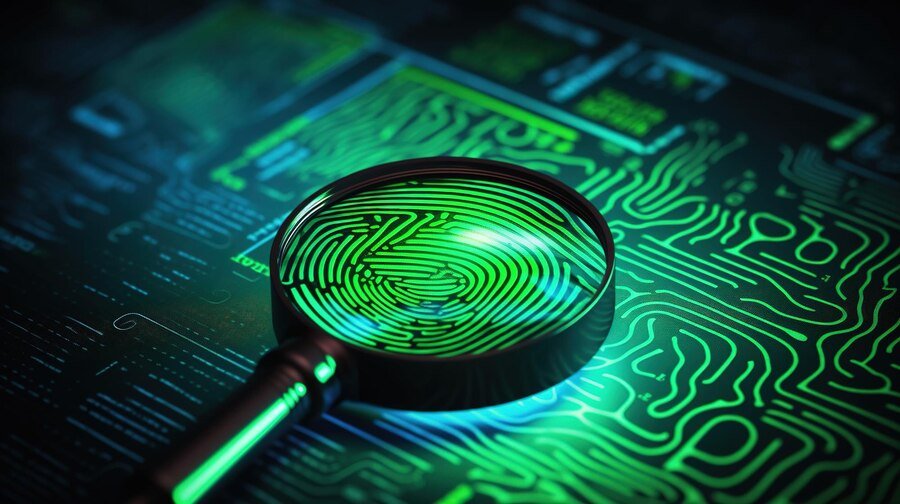
Cyber forensics, also known as digital forensics, is a specialized field within cybersecurity that involves the investigation, analysis, and presentation of digital evidence in a manner that is legally admissible. It focuses on uncovering and preserving data from digital devices and systems to support legal proceedings, investigate cybercrimes, and understand how digital incidents occurred.
Key Aspects of Cyber Forensics
Evidence Collection
Definition: The process of gathering digital evidence from various sources such as computers, mobile devices, servers, and network logs.
Techniques: Utilizing forensic tools and methodologies to ensure evidence is collected in a manner that preserves its integrity and is admissible in court.
Evidence Preservation
Definition: Ensuring that collected digital evidence is protected from alteration or tamperings.
Practices: Creating bit-by-bit copies (images) of storage media, maintaining a chain of custody, and using write blockers to prevent changes to the original data.
Data Analysis
Definition: Examining digital evidence to uncover relevant information and understand the context of an incident.
Techniques: Analyzing file systems, recovering deleted files, examining logs, and using specialized forensic software to identify patterns, artifacts, and anomalies.
Incident Reconstruction
Definition: Reconstructing the sequence of events leading up to, during, and after a cyber incident.
Techniques: Correlating data from various sources to create a timeline of activities and identify the methods used by attackers.
Reporting and Presentation
Definition: Documenting findings in a clear and concise manner, often for use in legal proceedings.
Practices: Writing forensic reports, presenting evidence in court, and providing expert testimony on findings and methodologies.
Key Components of Cyber Forensics
Digital Evidence Types
Hard Drives and Storage Media: Evidence from computer hard drives, SSDs, USB drives, and other storage devices.
Network Logs: Data from network devices, including routers, switches, and firewalls.
Mobile Devices: Evidence from smartphones, tablets, and other mobile devices.
Emails and Communication: Data from email servers and communication platforms.
Forensic Tools and Software
EnCase: A widely used digital forensic tool for investigating and analyzing data.
FTK (Forensic Toolkit): A suite of forensic tools for data examination and analysis.
X1 Social Discovery: A tool for collecting and analyzing data from social media and online sources.
Chain of Custody
Definition: The process of maintaining and documenting the handling of evidence to ensure its integrity.
Practices: Documenting every person who handles the evidence, the time and date of each transfer, and the condition of the evidence at each stage.
Legal and Ethical Considerations
Admissibility: Ensuring that evidence meets legal standards for admissibility in court.
Privacy: Respecting privacy laws and regulations while conducting forensic investigations.
Common Applications of Cyber Forensics
Criminal Investigations
Examples: Investigating hacking incidents, online fraud, identity theft, and child exploitation.
Corporate Investigations
Examples: Conducting internal investigations for data breaches, intellectual property theft, and employee misconduct.
Incident Response
Examples: Analyzing security breaches to understand how an attack occurred and how to prevent future incidents.
Compliance and Auditing
Examples: Ensuring adherence to regulatory requirements and conducting audits to verify data protection practices.
Skills and Qualifications
Technical Expertise
Knowledge of operating systems, file systems, and network protocols.
Proficiency with forensic tools and techniques.
Analytical Skills
Ability to analyze complex data and identify key evidence.
Reconstructing events and understanding attacker methods.
Legal Knowledge
Understanding of laws and regulations related to digital evidence and privacy.
Ability to present findings in a clear and legally sound manner.
In summary, cyber forensics is a critical discipline that involves the systematic investigation of digital evidence to support legal processes and enhance understanding of cyber incidents. It combines technical expertise with legal knowledge to ensure that digital evidence is accurately collected, preserved, and analyzed, and that it can be used effectively in legal contexts.
Topics Covered
Phishing, Malware, Ransomware
Cyber Aware
Cryptograohy
Biometries
Denial-of-service attack
Authenticate
Personal Attacks
IOT
Social Engineering
Cloud Security
Network Security
Mobile Security
Applict Security
Physical Security




